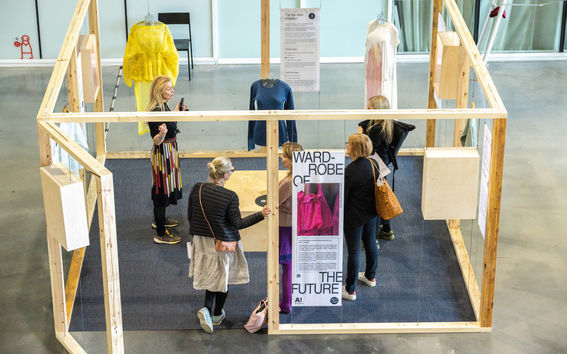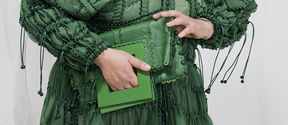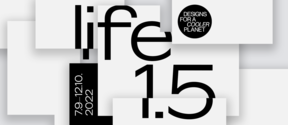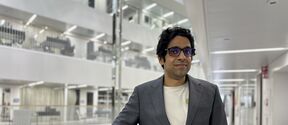Wardrobe of the Future shows the future of fashion (external link)
It is clear that the textile, clothing and fashion industries need to change. How do we do it? Discover the Aalto University community's visions for a sustainable fashion future.

The sustainability of the planet requires major changes in the textile, clothing and fashion industries. Materials, operating models and interactions must be viewed primarily from a sustainability perspective. We cannot predict the future, but we do have the power to shape it. How can we put an end to the destructive practices of today's fashion industry?
Moving from an outdated system to something new – systemic change – means simultaneously influencing many different elements, patterns and interactions. But first of all, we need to dare to think differently: what kind of future do we want to build for fashion, and what values and issues would it contain?
Almost all clothing has sustainability issues. Synthetic, oil-based fibres and many natural fibres are linked to serious social and environmental damage. The textile, clothing and fashion industries use thousands of chemicals at different stages of the manufacturing processes, including pesticides, microplastics, dyes and stain-resistant coatings.
However, non-toxic and environment and user-friendly solutions are available. New solutions are urgently needed to replace existing, harmful materials and processes.
At Aalto University, we’re experimenting across many disciplines including wearable textiles, biotechnology and new business models. When design, engineering, business and policy become intertwined, the status quo can be disrupted to build a real alternative to the old system that is failing us.
At Aalto, we love “bioneering”, materials research that generates new solutions in harmony with nature. We’re asking questions like: how can we reduce, reuse and recycle materials that already exist? And: which waste materials and residues could be turned into something useful? We’re also looking into radically new directions for bio-based materials: what is or could become fibre? Could we make fibres from forest resources? Could we grow materials from microbes or funghi? What about spider silk or seaweed, could they be useful?
The 'Wardrobe of the Future' exhibition presents some of the critical components of the fashion ecosystem and value chain:
Among the solutions on display are: the Ioncell fibre, Flaux leather made from floral waste (the work won the NEB Rising Star Award by the European Union) and new bio-based materials from CHEMARTS; non-toxic and biodegradable Biocolours, natural dyes such as Natural Indigo and structural colours such as Shimmering Wood; modular fashion, solar-powered textiles and headphones made from microbes.
The Wardrobe of the Future exhibition will be on display at Aalto University's Designs for a Cooler Planet event until 12 October 2022. Address: Väre building, Otaniementie 14, Espoo. The event is open for all.
The exhibition will be on display at the European Parliament in Brussels (Balcony Area -1G) during the first week of December.

It is clear that the textile, clothing and fashion industries need to change. How do we do it? Discover the Aalto University community's visions for a sustainable fashion future.

Open until 12 October 2022, Designs for a Cooler Planet is an annual exhibit showcasing bold designs that approach sustainability from avenues including fashion, food and materials.

The exhibition themes this year are life without a trace, sustainable style and a healthier food chain.



